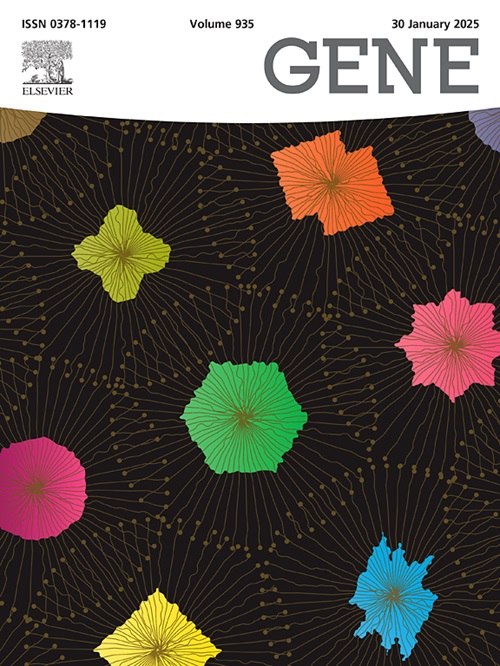The important role of stress granules in prostate cancer development, progression, and drug resistance
IF 2.4
3区 生物学
Q2 GENETICS & HEREDITY
引用次数: 0
Abstract
Prostate cancer (PCa) is the second most prevalent malignancy (7.3 %) and fifth leading cause of cancer death (4.1 %) in men globally. While lung cancer remains the predominant cancer in both incidence and mortality among all cancers, PCa exhibits geographically heterogeneous rising trends. Stress granules (SGs) are membraneless organelles formed through liquid–liquid phase separation (LLPS), playing a pivotal role in cellular stress responses, and are closely associated with various cancers, including PCa. Studies have shown that the expression of key SG-nucleating proteins, such as Ras-GTPase-activating protein-binding protein 1 (G3BP1), is upregulated in PCa, promoting the assembly of SGs. SGs can facilitate the initiation and progression of PCa by regulating mRNA stability, gene expression, and cellular signaling pathways, while also protecting cancer cells from damage under various stress conditions. Furthermore, SGs can modulate androgen receptor (AR) signaling, influencing PCa cell survival and sensitivity to androgen deprivation therapy (ADT). Additionally, SGs can promote PCa resistance to chemotherapy, including docetaxel (DTX), through interactions with various molecules involved in apoptosis, autophagy, and metabolism. This review summarizes the roles of SGs in the development, progression, and drug resistance of PCa, building on current advances in targeting SGs, highlights their promising potential as novel therapeutic targets for inhibiting malignant cancer progression, overcoming therapeutic resistance, and advancing PCa treatment strategies.
应激颗粒在前列腺癌发生、发展和耐药中的重要作用。
前列腺癌(PCa)是全球男性第二大最常见的恶性肿瘤(7.3% %)和第五大癌症死亡原因(4.1% %)。虽然肺癌在发病率和死亡率方面仍然是所有癌症中的主要癌症,但前列腺癌呈现出地域异质性的上升趋势。应激颗粒(Stress granules, SGs)是一种通过液-液相分离(liquid-liquid phase separation, LLPS)形成的无膜细胞器,在细胞应激反应中起着关键作用,与包括前列腺癌在内的多种癌症密切相关。研究表明,关键的sg成核蛋白如ras - gtpase激活蛋白结合蛋白1 (G3BP1)在PCa中表达上调,促进了SGs的组装。SGs可以通过调节mRNA稳定性、基因表达和细胞信号通路促进PCa的发生和发展,同时保护癌细胞免受各种应激条件下的损伤。此外,SGs可以调节雄激素受体(AR)信号,影响前列腺癌细胞的存活和对雄激素剥夺治疗(ADT)的敏感性。此外,SGs可通过与参与凋亡、自噬和代谢的多种分子相互作用,促进PCa对化疗(包括多西紫杉醇(DTX))的耐药。本文综述了SGs在前列腺癌发生、发展和耐药过程中的作用,结合目前靶向SGs的研究进展,强调了SGs作为抑制恶性肿瘤进展、克服治疗耐药和推进前列腺癌治疗策略的新靶点的潜力。
本文章由计算机程序翻译,如有差异,请以英文原文为准。
求助全文
约1分钟内获得全文
求助全文
来源期刊

Gene
生物-遗传学
CiteScore
6.10
自引率
2.90%
发文量
718
审稿时长
42 days
期刊介绍:
Gene publishes papers that focus on the regulation, expression, function and evolution of genes in all biological contexts, including all prokaryotic and eukaryotic organisms, as well as viruses.
 求助内容:
求助内容: 应助结果提醒方式:
应助结果提醒方式:


